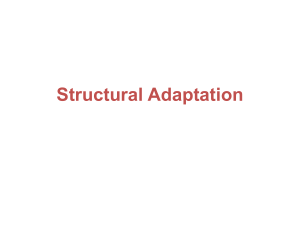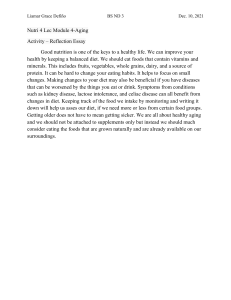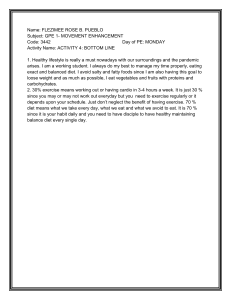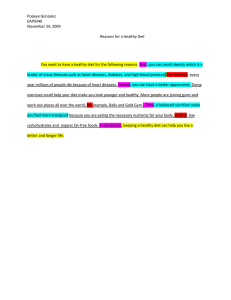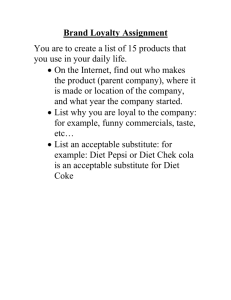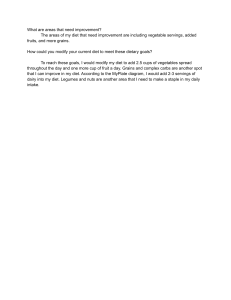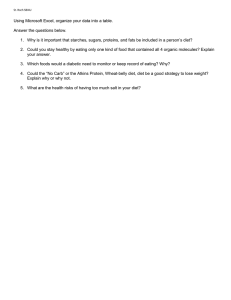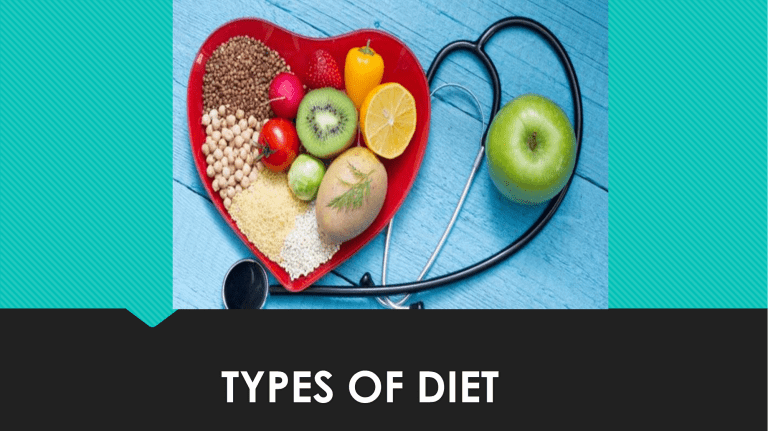
TYPES OF DIET CARNIVORE DIET The carnivore diet is where you eat nothing except meat. Some will have dairy products too like cheese and milk, while others will stick to just meat. The rules about sauces and spices are slightly more debatable, but most hardcore carnivore dieters will insist only on using salt and nothing else to flavor the meat. The Carnivore Diet includes only animal products and excludes all other foods. Specifically, someone on the Carnivore Diet can eat: •Meat: beef, chicken, turkey, organ meats, lamb, pork, etc. •Fish: salmon, mackerel, sardines, crab, lobster, tilapia, herring, etc. •Other animal products: eggs, lard, bone marrow, bone broth, etc. •Low-lactose dairy (in small amounts): heavy cream, hard cheese, butter, etc. •Water According to some proponents of the diet, salt, pepper, and seasonings with no carbs are allowed. HERBIVORE DIET An herbivore someone who eats vegetation, such as grasses, fruits, leaves, vegetables, roots and bulbs. Herbivores only eat things that need photosynthesis to live. This excludes insects, spiders, fish and other animals. PALEOTARIAN DIET A person who follows a paleolithic nutrition plan or eats a paleo/primal diet. Characterized by eating fresh fruits, vegetables, lean meats and rejecting gluten, grains, legumes, dairy, starchy vegetables, excessive carbohydrates and processed foods. POLLOTARIAN DIET A pollotarian diet is a type of semivegetarianism in which chicken is allowed, but red meat and pork are not. Some pollotarians may also include eggs and dairy in their diet. Those who eat fish and seafood are considered pesce-pollotarians. PESCATARIAN DIET By that definition, a pescatarian is someone who chooses to eat a vegetarian diet, but who also eats fish and other seafood. It's a largely plant-based diet of whole grains, nuts, legumes, produce and healthy fats, with seafood playing a key role as a main protein source. Many pescatarians also eat dairy and eggs. FLEXITARIAN DIET • Eat mostly fruits, vegetables, legumes and whole grains. • Focus on protein from plants instead of animals. • Be flexible and incorporate meat and animal products from time to time. • Eat the least processed, most natural form of foods. • Limit added sugar and sweets. VEGETARIAN DIET • Eat a variety of fruit and vegetables every day. ... • Base meals on starchy carbohydrates. • Dairy or dairy alternatives are needed for calcium. • Eat beans, pulses, eggs and other sources of protein. • Choose unsaturated oils and spreads. • Limit foods high in fat, salt and sugar. FRUITARIAN DIET The fruitarian, or fruit, diet is a highly restrictive vegan diet. It excludes all animal products, including dairy. People following this program eat a diet consisting primarily of raw fruits. Vegetables, dried fruits, nuts, and seeds can also be eaten in moderation. VEGAN DIET A vegan diet contains only plants (such as vegetables, grains, nuts and fruits) and foods made from plants. Vegans do not eat foods that come from animals including dairy products and eggs.
